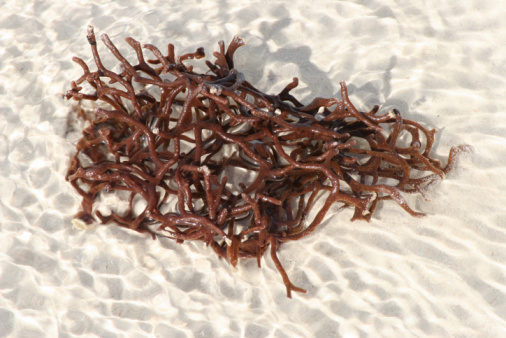Fukuoka, Japan—Researchers from Japan’s Graduate School of Bioresource and Bioenvironmental Sciences at Kyushu University and Daiichi Sangyo Co., Ltd., have discovered a possible anti-cancer agent in brown seaweed.
The study’s intent was to investigate the anti-tumor implications of fucodian extract (FE) extracted from brown seaweed. FE is said to contain, L-fucose and sulfate, along with low amounts of xylose, uronic acid, and galactose and possesses antioxidant, antiviral, antibacterial, anti-inflammatory, and anticoagulant activities. The researchers felt these FE components have a possible use against cancer. Because the ways in which FE kills cancerous cells is not obvious, researchers examined the interaction between FE and human carcinoma cells for signs of anti-tumor activity and mechanisms to bring light to the process. FE activates a caspase-independent, caspase being another cause of cell death (apoptosis) that can spread to areas not meant to be killed, apoptotic pathway through cancerous cells.
The researchers discovered that FE inhibits growth of cancerous MCF-7, MDA-MB-231, HeLa, and HT1080 cells by way of apoptosis, the process of programmed cell death, along with DNA fragmentation, nuclear condensation and phosphatidylserine exposure, all part of the apoptosis process. According to the study, “FE treatment inhibits cell growth of MCF-7 (60% growth inhibition after FE treatment for 96 h), MDA-MB-231 (41% growth inhibition after FE treatment for 96 h), HeLa (52% growth inhibition after FE treatment for 96 h), and HT1080 (40% growth inhibition after FE treatment for 96 h) cells.” They also found that FE treatment increases phosphorylation (the addition of phosphate) of JNK (a gene in every human cell), p38 (mitogen-activated protein kinases/enzymes), and ERK1/2 kinases (enzymes that respond to outside stimulation) and triggers MMP (zinc-dependent endopeptidases) by modulating expression of Bcl-2 (apoptosis regulator proteins) family members and depolarizing mitochondrial membranes, all contributing to the killing of cancerous cells in the human body.
Further studies are needed for the promising effects of FE on cancer cells before one can consider it a viable treatment for the disease.
Published in WholeFoods Magazine, February 2012, online 12/28/11










